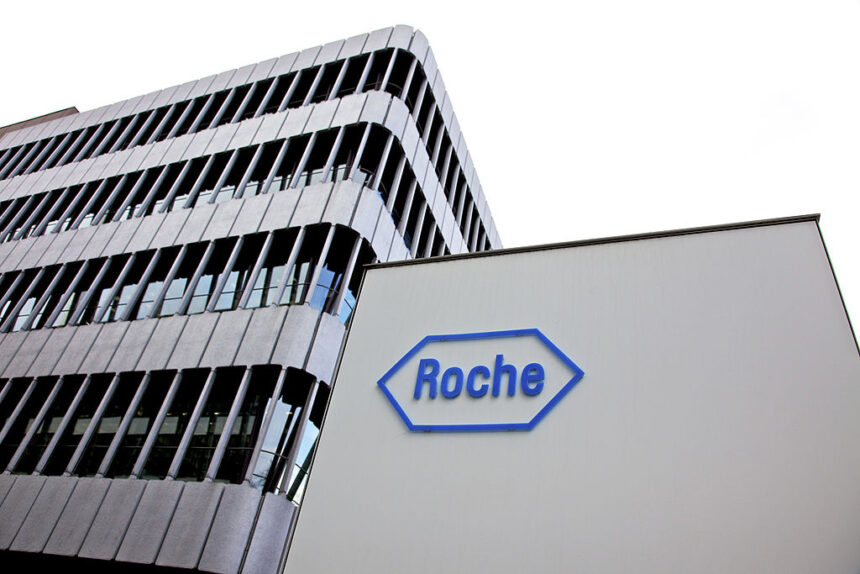Like so many other drugmakers, Roche has dealt with a significant decline in sales related to a shrinking demand for its COVID-19 products throughout 2023.
The company released its latest earnings report Thursday morning, highlighting group sales growth of 7% at constant exchange rates (CER) during the quarter. For year-to-date, that growth is at 1%.
The top drivers for the company were name brand treatments like eye disease drug Vabysmo, hemophilia treatment Hemlibra and multiple sclerosis treatment Ocrevus.
Over the same nine-month period, pharmaceuticals sales increased 9%, though Roche’s diagnostics division saw sales fall by 18%. Roche also cited currency headwinds, specifically the appreciation of the Swiss franc against most currencies, as having a significant adverse effect on the business.
Looking forward, Roche expects a decline in group sales in the low single-digit range but also anticipates strong sales growth in the base business, excluding COVID-19 sales declines. Additionally, Roche said it expects to further increase its dividend in Swiss francs.
“We achieved good results in the first nine months of 2023, more than compensating for the expected decline in demand for COVID-19 products,” Roche CEO Thomas Schinecker said in a statement. “Our Group sales excluding COVID-19 products continued to grow strongly by +9% at constant exchange rates. Additionally, we made significant progress in our product pipeline with numerous positive clinical studies. I am particularly pleased about the phase III data for Alecensa in early-stage lung cancer. Treating cancer at an early stage may give patients a chance for a cure. We confirm our outlook for 2023.”
The same day that Roche released its latest financials, Royalty Pharma announced it purchased additional royalties on Roche and PTC Therapeutics’ oral spinal muscular atrophy drug for an upfront payment of $1 billion.
Weeks before releasing its latest earnings, Roche scooped up two novel RNA-targeted programs for Alzheimer’s disease and Huntington’s disease from Ionis Pharmaceuticals. Roche is paying Ionis $60 million upfront for the worldwide exclusive rights to the treatments and Ionis will be eligible to receive developmental, regulatory and commercial milestone payments as well as tiered royalties.
The Swiss drugmaker also ran afoul of The Prescription Medicines Code of Practice Authority (PMCPA), Britain’s pharma marketing regulator, due to concerns about the dosing webpage on Roche’s promotional website for Rozlytrek (entrectinib).
The PMCPA panel reviewing the charge said it considered Roche had “failed to maintain high standards” and “brought discredit upon and reduced confidence” in the pharmaceutical industry as a result of the webpage information.
For a January 2024 article on Merck notching a surprise Q4 profit, click here.







